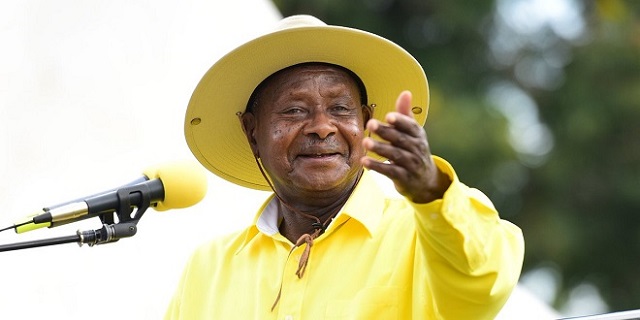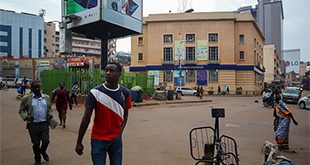
ANALYSIS: After 32 years in power, has NRM party lost its ideology
Kampala, Uganda | FLAVIA NASSAKA | Every politician makes great promises to win and retain power and President Yoweri Museveni has mastered that. Every year during the National Liberation Day celebrations, he revises old promises and makes new ones. While the slew of figures of kilometers of new tarmac roads, growth in GDP figures, extension of electricity generation and more excite many, some analysts are more interested in the ideological direction of Museveni and the ruling NRM party.
And NRM Day, which marks the day in 1986 when Museveni, then a rebel army leader of the National Resistance Army (NRA) became President of Uganda when his forces captured power and declared a government in the capital Kampala even as they continued fighting in the rest of the country, is a perfect moment.
The euphoria of that day has since normalised into a daily grind to cope with escalating costs of living and social services; especially education and health, battles over resources; especially land, corruption, and increasing insecurity and repression of political dissent. The political opposition has sought to capitalise on the anger, but Museveni and his party have trounced them – in election after election, the opposition says are rigged.
Anti-Museveni campaigners often reference Museveni’s inaugural speech on January 26, 1986 at the steps of parliament after being sworn-in. He promised a “fundamental change” in the politics of Uganda built on “a clear-headed movement with clear objectives”.
He said the first point of the NRM programme; the restoration of democracy would be built on elected Resistance Committees at village, muluka, gombolola, and district level for peoples’ voices to be heard.
The second point was security of person and property, and the third was unity of country and end of religious and tribal divisions. Finally, he promised East African co- operation in economic matters.
Since then, the President has been making similar speeches explaining the NRM ideology. The most significant was one he gave on July 26, 2016 to a joint meeting of the NRM central executive committee, cabinet, and permanent secretaries at the National Leadership Institute (NALI) in Kyankwazi titled “Re-focusing on the National Resistance Movement (NRM) Ideological Orientation”. In it, Museveni reiterated the original “NRM 10 Point Programme” of restoration of democracy, restoration of Security, consolidation of national unity and elimination of all forms of sectarianism, and defending and consolidating national independence.
Point number five was building an independent, integrated and self-sustaining national economy, sixth restoration and improvement of social services and rehabilitation of war ravaged areas, seventh elimination of corruption and the misuse of power, and eighth was redressing errors that have resulted in the dislocation of some sections of the population. Point nine was cooperation with other African countries, and ten was following an economic strategy of a mixed economy.
The President, however, based the speech on what have become the “Four NRM Principles”, namely: patriotism (anti-sectarianism and anti-gender-chauvinism), pan-Africanism, socio-economic transformation, and democracy. He said Ugandans have internalised, generally speaking, all principles of the NRM except socio-economic transformation. He said this is still problematic. He described it as the evolution of society from lower forms of social organisations to higher forms or middle-class and skilled working class societies.
He said enabling Uganda to become a Middle Income status country by 2020 and a First World country in the next 30 years if not less “is now the single most important task of the NRM”. Museveni has diverted But in the run up to the NRM Day celebrations this year, Livingstone Sewanyana, the executive director of the Foundation for Human Rights Initiative (FHRI), says the NRM has diverted from their own set indica- tors in the 10-point programme, including the prosperity for all project, and delivering Uganda to the middle income status by 2020.
“Now they are concentrating on how the party and Museveni survive longer in power,” he says. Sewanyana, who is also a member of the Uganda Governance Monitoring Platform, says the NRM is not willing to discuss any post-Museveni agenda. He says the issues Museveni noted while coming to power in 1986, including ideological disorientation, a weak state, suppression of the private sector, under developed infrastructure, underdeveloped social services, and an attack on democracy, are once again increasingly defining the country.
“With his long stay he is even undoing the promises he had fulfilled,” Sewanyana says. He cites the concept of popular democracy, where Museveni came in promising more inclusive politics and upholding the will of the people and yet he now appears determined to oversee attacks on democracy.
“What pre-occupies them now is how the regime survives. After removing age limits from the constitution, cabinet has now passed a resolution for a referendum so that the presidential term can be increased to seven years,” he says.
 The Independent Uganda: You get the Truth we Pay the Price
The Independent Uganda: You get the Truth we Pay the Price


